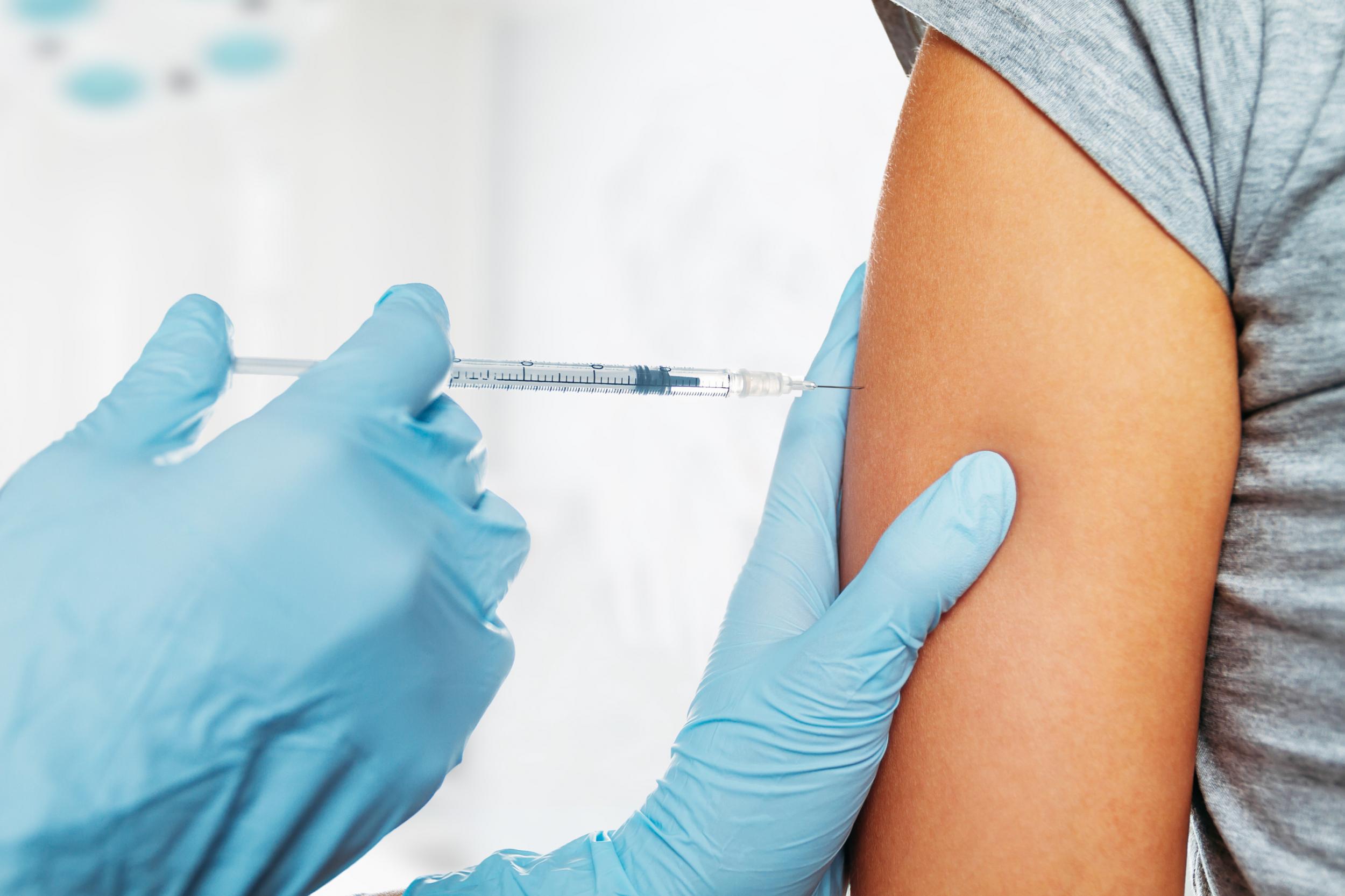HPV: Boys should be given cancer-preventing jab, says vaccination body
Immunisations advisory body concludes 'gender neutral' vaccination likely to be cost effective

Your support helps us to tell the story
From reproductive rights to climate change to Big Tech, The Independent is on the ground when the story is developing. Whether it's investigating the financials of Elon Musk's pro-Trump PAC or producing our latest documentary, 'The A Word', which shines a light on the American women fighting for reproductive rights, we know how important it is to parse out the facts from the messaging.
At such a critical moment in US history, we need reporters on the ground. Your donation allows us to keep sending journalists to speak to both sides of the story.
The Independent is trusted by Americans across the entire political spectrum. And unlike many other quality news outlets, we choose not to lock Americans out of our reporting and analysis with paywalls. We believe quality journalism should be available to everyone, paid for by those who can afford it.
Your support makes all the difference.Vaccination against the cervical cancer-causing human papillomavirus (HPV) should be extended to boys, the government advisory body on immunisations has recommended.
After an inquiry into the cost-effectiveness of broadening the HPV jab programme, the Joint Committee on Vaccination and Immunisation (JCVI) backed a “gender neutral” scheme.
Since 2008, HPV vaccination has been routinely offered to girls aged 12 to 13 at secondary school and is free on the NHS up until their 18th birthday, but there have been been growing demands to extend immunisation to boys.
The JCVI advised extending immunisation to adolescent boys at the same age as girls.
Charities and medical experts have been lobbying for the change and welcomed the news calling for vaccination of boys to begin in 2019 “at the latest”. The recommendation is likely to be backed by the government which said it would respond shortly.
The sexually transmitted HPV virus is responsible for virtually all of the 3,100 cervical cancers diagnosed in the UK each year, and up to five per cent of all cancers, charities said.
Vaccination massively reduces cervical cancer cases, and the need for costly screening, and also prevents against growing rates of mouth, throat and genital cancers, and genital warts, which can all affect men and women.
In July last year, an interim statement by the JCVI said it could not recommend extension of the national HPV programme.
However a report by the committee, published on Wednesday, said: “If considering a cost-effectiveness analysis where a combined girls’ and boys’ programme is compared to no vaccination, gender-neutral HPV vaccination is highly likely to be cost-effective.”
This decision was changed after evidence put forward in the consultation suggested that HPV was responsible for 60 per cent of mouth and throat cancers, rather than 30 per cent assumed in earlier tests.
It also better accounts for the lifelong protection it gives and broader protection to groups who are harder to reach with adult vaccination programmes, including men who have sex with men.
“The JCVI’s advice that boys should be vaccinated is very welcome news for boys and their parents,” said Peter Baker, director of campaign group HPV Action.
“It will also benefit those girls who for whatever reason have not been vaccinated against HPV.
“We have waited a very long time for this announcement and it is now imperative that ministers accept the JCVI’s advice without delay so that no more boys are left at risk."
Shirley Cramer CBE, chief executive of the Royal Society for Public Health, said: “The JCVI’s decision to advocate for a gender neutral vaccination programme against HPV is a victory for the public’s health.
“Boys have been left insufficiently protected against HPV for too long and it is good news that the UK is following in the footsteps of the other 20 countries already vaccinating boys against HPV.”
A Department of Health and Social Care spokeswoman said: “The Government takes advice from an independent expert committee – the Joint Committee for Vaccination and Immunisation (JCVI) – when making decisions on vaccination programmes.
“We are carefully considering their advice and will update on a decision shortly.”
Additional reporting by PA
Join our commenting forum
Join thought-provoking conversations, follow other Independent readers and see their replies
Comments